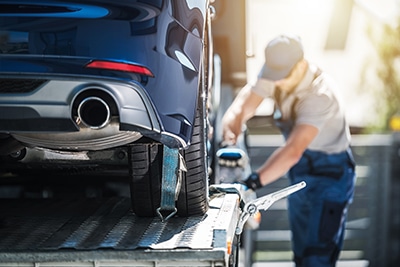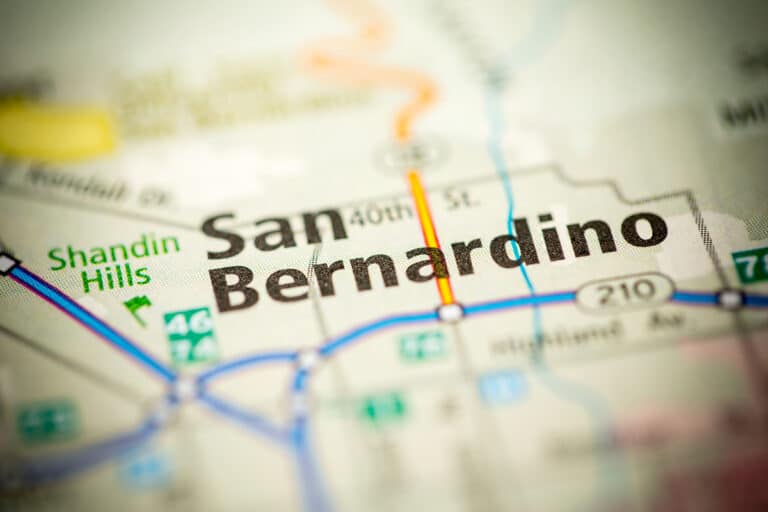
For Ford owners in California, the phrase “lemon law” offers a surprising silver lining. If you’re the unlucky owner of a Ford vehicle that’s spent more time in the repair shop than on the road, the Ford Buy Back Program might just be your ticket to relief. Designed to provide peace of mind, this program ensures that your investment is protected and your vehicle meets the standards of quality and reliability that you rightfully expect. Stay tuned as we delve into the details of how California residents can navigate the intricacies of the lemon law and potentially qualify for a buyback or replacement of their Ford vehicle.
What Is The California Lemon Law?
The California Lemon Law, part of the state’s consumer protection laws, is specifically designed to help when you’re stuck with a new vehicle that is suffering from repeated issues. Essentially, if you purchase or lease a new vehicle that turns out to be defective and the manufacturer’s reasonable attempts to fix these defects are unsuccessful, the law mandates the manufacturer to either replace or buy back the vehicle. This law applies not only to cars but also to trucks, motorcycles, and most vehicles used for personal, family, or household purposes. Consumers are expected to allow the manufacturer an opportunity to repair the vehicle, but if the issue persists after a reasonable number of repair attempts or if the vehicle is out of service for an extended period for repairs, the Lemon Law can provide much-needed recourse.
Understanding the Ford Motor Company Buy Back Program
Understanding the Ford Motor Company Buy Back Program involves recognizing what “ford lemon law buybacks” entail. Essentially, this program initiated by Ford manufacturers allows customers who have purchased a Ford vehicle that fails to meet performance and quality standards to sell it back to the manufacturer. When a Ford vehicle is deemed a “lemon” – that is, it has substantial deficiencies that affect its use, safety, or value, and these issues cannot be repaired after a reasonable number of attempts – the owner may be entitled to a buyback under the lemon law. The program offers a solution where the manufacturer can purchase the faulty vehicle back from the consumer, providing financial reimbursement or a replacement vehicle. This buyback process is a reassurance from Ford manufacturers that they stand behind their products and are prepared to rectify any significant defects.
Eligibility Criteria for California’s Lemon Law
To take advantage of California’s Lemon Law, several eligibility criteria must be met. Firstly, the defective vehicle in question must have been purchased or leased in California. Additionally, the vehicle must have undergone multiple repair attempts by an authorized dealer for the same issue, under the vehicle’s warranty period. The law stipulates that these attempts must be considered reasonable, though the exact number may vary depending on the severity of the vehicle’s defect. It is crucial that the defect substantially impairs the vehicle’s use, value, or safety. If these conditions are fulfilled and the vehicle meets the state’s definition of a ‘lemon,’ the owner may then be eligible for the buyback program. It’s essential to diligently document all repairs and communications to establish a clear case for eligibility under the lemon law.
Initiating the Buyback Process in California
To initiate the buyback process under the California Lemon Law, the vehicle owner should first ensure all the relevant criteria of the lemon law are met, with a particular emphasis on the issues occurring within the original factory warranty period. The process begins with gathering all pertinent documents such as the purchase or lease agreement, repair orders, and records showing the vehicle’s problem has been presented to an authorized dealer for multiple attempts at repair. It is critical to have a detailed account of each visit to the dealership, noting the dates, concerns reported, and the outcomes of the repairs.
Once documentation is in order, the owner needs to formally notify the manufacturer of their intention to request a buyback, often through a written complaint or direct communication with the manufacturer’s customer service department. The manufacturer is then given a final opportunity to repair the vehicle. If the issue remains unresolved, the owner can proceed with the buyback request by filing a claim with an arbitration program or, if necessary, seeking legal action.
The buyback process can either be navigated independently by the consumer or with the assistance of a specialized attorney. It is imperative that each step is taken within the proper timeframes and all communication and documents are well-organized. Should the claim be approved, the manufacturer will typically reimburse the owner for the vehicle’s purchase price, less a deduction for the vehicle’s use before the first repair attempt for the defect. Alternatively, a comparable replacement vehicle may be offered, signifying the light at the end of the tunnel for consumers dealing with a “lemon.”
Ford Vehicles Covered Under The Lemon Law Buyback Program
Several Ford models fall under the umbrella of California’s Lemon Law, allowing consumers to pursue a buyback or replacement if their vehicles persistently fail to meet quality and performance standards. The lineup of Ford vehicles covered by this law incorporates a broad spectrum of models, from sporty to utilitarian. Some of the eligible models include:
- Ford Mustang: This iconic sports car is known for its performance and design but is also covered under the lemon law in case of any significant, unresolvable issues.
- Ford Explorer: A dependable family SUV, the Explorer is included in the lemon law protection for California residents.
- Ford Fiesta: A compact and efficient car for city driving, the Fiesta is also under the buyback program’s wing if it displays ongoing defects.
- Ford Focus: Renowned for its handling and fuel economy, the Focus is nevertheless protected by the lemon law should continuous problems arise.
- Ford Escape: This versatile SUV is designed for both urban and adventure-driven lifestyles and is supported by California’s lemon law.
- Ford Fusion: A sleek sedan that promises comfort and performance but is also eligible for buyback if it fails to meet expected standards.
- Ford Models: In general, various other Ford models may qualify for California’s lemon law protection, considering they meet the necessary criteria.
If an owner encounters uncompromisable issues with any of these Ford vehicles, they may invoke the lemon law and seek remuneration or a replacement from the manufacturer.
Common Defects in Ford Vehicles
Common defects in Ford vehicles that may render them eligible for a buyback include transmission issues, such as slipping gears, delays in shifting, and unexpected surging, all of which can significantly impair driving performance. Engine problems are equally as significant, with some vehicles experiencing excessive oil consumption, overheating, or unusual noises that could denote mechanical failures. Electrical malfunctions, including issues with the infotainment system, faulty wiring, or a short circuit can lead to a cascade of operational difficulties, potentially compromising vehicle functionality and safety.
Moreover, safety recalls are an urgent category of defects that may invoke the lemon law, as these involve critical components that could affect the driver’s and passengers’ well-being. Such recalls are often issued for problems that could lead to accident risks, such as brake failures or airbag malfunctions. Additionally, general manufacturing defects, which could range from poor fit and finish to more severe concerns like structural weaknesses, may also be grounds for a buyback. These problems, across various models and parts, highlight the importance of stringent quality control and responsive customer service in addressing and rectifying such issues to maintain consumer trust and safety.
Benefits of Participating in the Buy Back Program
Participation in Ford’s buy back program offers California residents several significant benefits when faced with a lemon. Firstly, residents can receive substantial financial compensation for cars and trucks deemed defective, ensuring that their investment is protected. This compensation may go towards purchasing a new car or truck, alleviating the frustration of having dealt with a problematic vehicle.
Additionally, Ford’s network of authorized dealers plays a pivotal role in facilitating the buy back or trade-in process in a timely manner. The program allows participants to negotiate with dealers to replace their defective vehicle with a new or comparable model, often with a straightforward and customer-focused approach.
What’s more, this process prevents prolonged inconvenience due to defective vehicles, as residents are not left without transportation for extended periods. Ford’s commitment to customer satisfaction is reflected in the efficiency of the buy back program, turning a potentially negative experience into an opportunity for the customer to start fresh with a reliable and safe vehicle.
Benefits of Filing Ford Lemon Law Claims
When participating in Ford Lemon Law claims, financial considerations play a critical role for consumers. The prospect of a buyback offers a financial recourse whereby the manufacturer reimburses the vehicle’s purchase price or provides a replacement. Consumers should be aware that any reimbursement would typically account for depreciation, with compensation adjusted based on the mileage and usage before the first repair attempt for the defect.
Another financial aspect to consider is the potential cost of legal representation. While it is possible to proceed without an attorney, navigating the lemon law’s legal intricacies can be challenging. The hiring of a specialized attorney, while potentially incurring upfront costs, may increase the likelihood of a successful claim, with many law firms operating on a contingency fee basis.
Furthermore, costs associated with vehicle downtime, rentals, or alternative transportation while the car is unusable or undergoing multiple repairs also need to be recognized. These expenses can sometimes be recouped as part of the claim but represent out-of-pocket costs in the interim.
Finally, it is crucial for owners to maintain thorough records of all repair orders, receipts, and communications with the manufacturer or dealership as these documents play a pivotal role in the claim’s financial aspects and overall success.
How Do I File A Ford Lemon Law Claim?
To file a Ford lemon law claim in California, residents must first ensure that they have a substantial case by reviewing the repair history of their Ford cars, noting if the number and frequency of defects align with the lemon law criteria. The next step is to notify the manufacturer of the intent to file a claim by providing a written summary of all issues and repair attempts. It’s imperative to retain a copy of this correspondence for records.
Following notification, the owner should compile all relevant documentation, including the vehicle’s purchase or lease agreement, repair orders, and any communications with Ford or the authorized repair facility. This evidence is essential in establishing that the car has not been fixed after a reasonable number of attempts.
If desired, the owner may then consult a legal professional specializing in lemon law cases to guide the process further and increase the likelihood of a favorable outcome. The attorney can negotiate with Ford on the owner’s behalf, aiming to secure the repurchase or replacement of the vehicle, or a financial settlement.
California residents should submit their claim within the state’s statutes of limitation for lemon law cases to safeguard their rights. Filing promptly can expedite the process, thus potentially reducing the inconvenience associated with owning a lemon and providing a faster route to a satisfactory resolution.
How A Lemon Law Attorney Can Help
A lemon law attorney is instrumental in the process of seeking justice for consumers bogged down by defective vehicles. The seasoned professionals at Lemon Law Associates of California bring an in-depth understanding of lemon law cases to the table, which can be paramount for clients navigating the often complex legal framework. Their expertise ensures that all necessary legal procedures are correctly followed and that their clients’ rights are vigorously defended. Armed with experience from previous cases, they can anticipate possible defenses from manufacturers and tailor their strategy accordingly, aiming to secure the best possible outcome for those beleaguered by unreliable automobiles. A lemon law attorney is not just a legal advisor but an advocate for fairness, fighting to ensure that consumers do not bear the burden of manufacturing oversights.
Contact Us Today
For California residents grappling with the stress of recent recalls, the Ford lemon law buy back program presents a viable solution worth considering. Such programs have been established to assure you that your concerns are acknowledged and that you are not left at a disadvantage. If your vehicle has been persistently malfunctioning, reach out to the dedicated team at Lemon Law Associates of California. As seasoned lemon law attorneys, they are equipped to navigate the complexities of Ford’s buy back process, ensuring you receive the justice and compensation you deserve. Don’t let a faulty vehicle disrupt your life any longer; allow the experts in lemon law to support your journey toward a fair resolution.
















